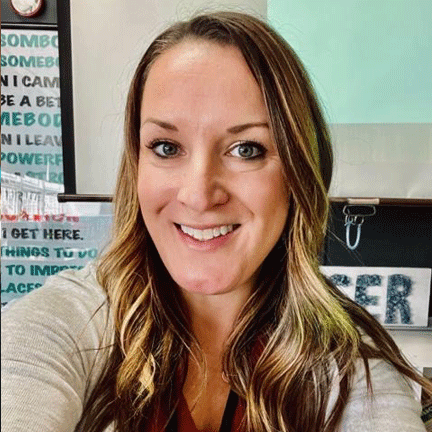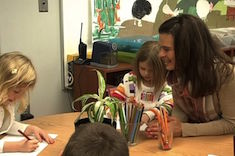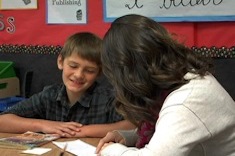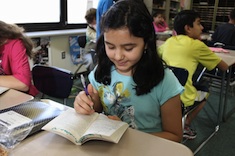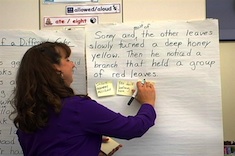When Stephen King is asked, “How do you write?” he invariably answers, “One word at a time.” Those readers and writers who admire his work seek wisdom and inspiration from his experiences. Stephen’s response reminds us: To be a writer—one must write.
Early in the year, my whole staff received an email from me asking them to write a brief description of what inspires them to write and what type of writing they do most. The responses I received were fantastic, demonstrating many aspects of real-life writing. Here are a few samples:
Things that inspire me to write reflectively are “moments” that are relevant to my life. Maybe I experienced something really powerful at school or during a conversation with friends, or something unique happened to me while I was out shopping or at the gym. These are things that inspire me to sit down and write. I find that writing is a good tool for me to think situations through. When I can look at what happened on paper, sometimes it makes more sense to me and I can react to it more appropriately than if I just react instantaneously.
—Ms. Harding (First Grade)
The things that most inspire me to write are emotions. This usually turns into poems/songs. If I see, hear, or experience something that sticks with me all day, I’ll usually write about it.
—Mr. Soens (Fifth Grade)
The writing I do most is keeping in touch with my 80-year-old aunt in New York City; I ask her a lot of questions about growing up in Paris during the war and the things that she has seen during her lifetime.
—Mrs. Bowman (Library Assistant)
What Inspires You to Write?
During my minilessons I shared a couple of quotes and glued them on an anchor chart with the heading “What Inspires Teachers to Write.” During writing workshop, students could choose from the chart of inspirations and try them out in their own writing journals. This strategy cut down on the “I can’t think of anything to write about” conundrum.
At the same time I sent out the staff email, I invited several guests in to the classroom to share their inspirations for writing. My first guest was Stephanie Charette, a former teacher of most of my students and also an avid writer. She shared how she likes to mimic a favorite author’s style to get her going and keeps pictures of family members that inspire her journaling. Students asked her questions and hung on every word. As a follow-up she wrote my class a letter and said they were the inspiration for her writing the letter—a great way to tie it all together.
Principal Tim Fries, another prolific writer, was our next guest. He brought in a Rubbermaid tote and explained to the class how he has three others full of journals at home. He confessed he was not inspired to write until he was an adult, and the inspiration came on a flight to Czechoslovakia. During his yearlong stay there, he found writing as an outlet while being the only English-speaking roommate in the house. He also shared his ideas for young adult narratives, which he keeps in a notebook. Students wanted to know where Mr. Fries got his ideas and if they could be the illustrator for a potential fictional story.
My third guest was an instructional coach and published author, Heather Rader. She brought in her published nonfiction book about teaching, spoke about the process, and shared a sample of a fictional piece called “Tabitha Thinker Changes the Library” inspired by life experiences. Students wanted to know more about the characters she created, if she wrote when she was young, and the intricate details of how she began the publication process.
Inspiration Leads to Learning
After hearing ideas from teachers, administrators, and published authors, students spent time during writing workshop finding their own inspiration. This two-week process set the tone for writing workshop where students take risks and experiment freely as writers. While students enjoyed getting their ideas on paper, I used their pieces as assessment tools to guide conferences and set goals.
Throughout the duration of these lessons I noticed growth in students’ writing confidence. They didn’t have to write one certain way about one particular topic. They embraced the notion that every author has their own style. When students began goal setting, I had two of them look beyond their immediate goals to “one day be a published author.” We still have a long way to go to reach our goals by May, but it’s wonderful to see confident and creative writers at the starting line, writing one word at a time.


